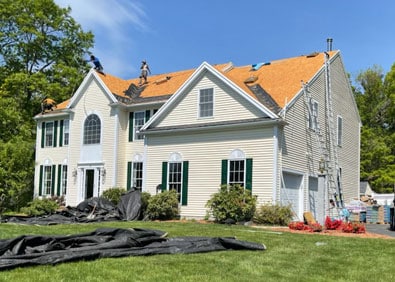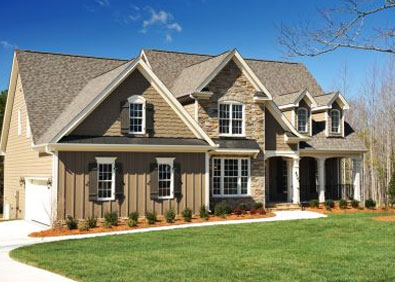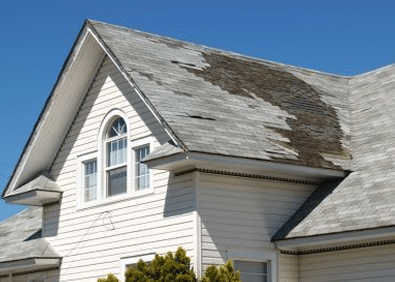
When it comes to maintaining your commercial property, selecting the right commercial flat roofers is crucial. Whether you’re dealing with new installations, repairs, or replacements, the quality of workmanship can significantly impact the longevity and performance of your roof.
Choosing the best commercial flat roofing contractor means ensuring your investment is protected by durable and well-maintained roofing systems.
I’m Jason Hedtler, the owner of Roof Experts. With over 20 years of industry experience, my team and I specialize in delivering premium commercial flat roofing services custom to meet the unique needs of businesses in Massachusetts. Let’s dive deeper into what makes a great commercial flat roofer.
Commercial flat roofers vocab explained:
– flat roofing companies near me
– flat roofing service
When it comes to commercial flat roofing systems, understanding the different types and their unique benefits and drawbacks is essential. This knowledge helps you make informed decisions for your building’s roofing needs.
1. TPO (Thermoplastic Olefin) Roofing:
– Pros: TPO is highly reflective, which helps in reducing cooling costs. It’s durable, resistant to UV rays, and has a lower environmental impact compared to other materials.
– Cons: Requires professional installation due to the need for heat-welded seams. Limited color options.
2. EPDM (Ethylene Propylene Diene Monomer) Roofing:
– Pros: Known for its durability, EPDM can last up to 50 years with proper maintenance. It’s also easy to repair and has high resistance to UV rays.
– Cons: The standard black EPDM absorbs heat, which can increase cooling costs. Less aesthetically appealing compared to other options.
3. PVC (Polyvinyl Chloride) Roofing:
– Pros: PVC is flexible, durable, and offers excellent chemical resistance. It comes in various colors, enhancing the building’s aesthetic appeal.
– Cons: Generally more expensive than other flat roofing materials. Requires professional installation.
4. Built-Up Roofing (BUR):
– Pros: BUR systems, often called “tar and gravel” roofs, are cost-effective and provide excellent waterproofing. They are also fire-resistant and easy to repair.
– Cons: Installation is time-consuming due to multiple layers. Heavier than other options, requiring strong support structures.
5. Modified Bitumen Roofing:
– Pros: This roofing type is highly durable and waterproof. It offers high resistance to UV rays and can withstand significant foot traffic.
– Cons: Repairing modified bitumen can be challenging and costly. Limited color options.
6. Green Roofs:
– Pros: Eco-friendly and provide natural insulation. They reduce stormwater runoff and can improve air quality.
– Cons: Higher initial installation costs and require more maintenance compared to traditional roofing systems.
Understanding the benefits and drawbacks of each commercial flat roofing system will help you choose the best option for your building.
Durability:
– EPDM and Modified Bitumen are known for their long lifespans, often exceeding 20-30 years.
– PVC and TPO also offer excellent durability, with lifespans ranging from 15-30 years.
Energy Efficiency:
– TPO and PVC are highly reflective, reducing cooling costs and improving energy efficiency.
– Green Roofs provide natural insulation, which can significantly lower energy bills.
Maintenance:
– BUR and Modified Bitumen require regular inspections but are relatively easy to repair.
– EPDM is simple and inexpensive to fix, making it a low-maintenance option.
– Green Roofs require more upkeep due to vegetation care.
Cost:
– BUR and Modified Bitumen are generally cost-effective options.
– TPO and PVC are more expensive but offer long-term energy savings.
– Green Roofs have higher initial costs but can provide financial benefits through energy savings and potential tax incentives.
By understanding the different types of commercial flat roofing systems and their respective benefits and drawbacks, you can make an informed decision that best suits your business needs and budget.
Next, let’s explore the key qualities to look for in commercial flat roofers to ensure you make the best choice for your roofing project.
When it comes to selecting commercial flat roofers, there are several key qualities you should consider to ensure you receive top-notch service. Here are the most critical factors to look for:
Years in Business:
Experience matters. Look for roofing companies that have been in business for several years. A long track record often indicates reliability and expertise.
Training Programs:
Ensure the company invests in continuous training for its team. For example, some companies train their foremen and installers using quality assurance roofing education programs, ensuring they are updated with the latest installation techniques.
Certifications:
Certifications from reputable organizations like the National Roofing Contractors Association (NRCA) and the Polyisocyanurate Manufacturers Association (PIMA) are good indicators of a roofer’s expertise and commitment to quality.
Class A Licensed Contractors:
Make sure your roofer holds a Class A license, which is the highest level of contractor licensing. This ensures they have met rigorous standards for skill and experience.
Insurance:
Verify that the roofer carries adequate insurance, including general liability and workers’ compensation. This protects you from potential liabilities if accidents occur during the project.
OSHA Requirements:
Compliance with OSHA requirements is essential for safety. Reputable companies adhere strictly to OSHA regulations, ensuring a safe working environment for their employees and your property.
Angie’s List and Consumers’ Checkbook:
Look for companies with high ratings on platforms like Angie’s List and Consumers’ Checkbook. Positive reviews on these sites often reflect consistent customer satisfaction.
Local Publications:
High ratings in local publications can also be a good indicator of a roofer’s reputation in the community.
Better Business Bureau (BBB) Rating:
A high BBB rating is another sign of a trustworthy company. It shows the roofer handles customer complaints promptly and professionally.
Safety Training:
Ensure the company prioritizes safety training. This includes regular safety drills and adherence to strict safety protocols.
Compliance Certifications:
Certifications from industry bodies like the International Code Council (ICC) and membership in organizations such as the Property Management Association (PMA) demonstrate a commitment to maintaining high standards.
OSHA Requirements:
Compliance with OSHA safety standards is non-negotiable. This ensures that all work is performed safely and reduces the risk of accidents.
By focusing on these key qualities, you can confidently select commercial flat roofers who will deliver quality work, ensuring the longevity and performance of your commercial roofing system.
Next, let’s explore the services offered by commercial flat roofers to understand what you can expect from your roofing project.
Roof Installation:
When it comes to new construction, commercial flat roofers in Massachusetts play a crucial role. They work closely with contractors and property owners to install high-quality roofs that meet all specifications. This includes selecting the right materials and ensuring that the installation process is efficient and up to code.
Roof Replacement:
Over time, every roof will need replacing. Trusting professionals for your roof replacement ensures a seamless process. They will help you choose from a variety of roofing options, such as TPO, EPDM, or PVC, which can improve the durability and energy efficiency of your building.
Emergency Repairs:
Roofing emergencies, like leaks or storm damage, can happen at any time. Reliable commercial flat roofers in Massachusetts offer 24/7 emergency repair services to address these issues swiftly and effectively, minimizing damage to your property.
Routine Maintenance:
Regular maintenance is key to extending the lifespan of your roof. Customized maintenance plans help keep your roof in peak condition and prevent costly repairs. Services include clearing debris, inspecting for damage, and checking drainage systems.
Comprehensive Inspections:
Thorough roof inspections are essential for identifying potential issues before they become major problems. Professionals provide detailed reports and expert recommendations to keep your roof in optimal condition.
Leak Detection:
Using advanced technology, commercial flat roofers can accurately detect and repair leaks. This protects your property from water damage and maintains the integrity of your roof.
By offering these comprehensive services, commercial flat roofers in Massachusetts ensure that your roofing system remains durable, efficient, and well-maintained.
Understanding the costs involved in flat roof repair and replacement can help you budget effectively. On average, replacing a flat roof can cost between $4,000 and $15,000. The national average is around $6,949. For repairs, the costs can range from $300 to $1,500, depending on the extent of the damage.
Several factors can influence the total cost of your commercial flat roofing project:
To manage costs effectively, consider the following tips:
By understanding these cost considerations, you can make informed decisions that align with your budget and long-term goals.
Lead directly into the next section: Frequently Asked Questions about Commercial Flat Roofers.
Flat roof repair costs can vary widely based on several factors. On average, you can expect to pay between $300 and $1,500 for repairs. However, the exact cost depends on the extent of the damage, the materials used, and labor costs.
Factors affecting repair costs include:
Pro Tip: Regular maintenance and timely repairs can help keep costs down. Address minor issues promptly to prevent them from becoming major problems.
Inspection frequency is crucial for maintaining the longevity of your commercial flat roof. It is recommended to conduct a detailed inspection at least once a year. Additionally, inspections should be performed after any major weather events like storms or heavy snowfall.
Signs of damage to look for include:
Maintenance tips: Regularly clean debris from the roof and drainage systems to prevent water buildup. Also, schedule professional inspections to catch issues early.
When it comes to material durability, several options stand out for commercial flat roofs. Each material has its own strengths and maintenance requirements.
Pro Tip: The best roofing material for your building depends on your specific needs, such as climate, building use, and budget. Consulting with a qualified roofing contractor can help you choose the most suitable option.
By understanding these FAQs, you can make more informed decisions about your commercial flat roofing needs, ensuring your building remains protected and efficient.
Choosing the right commercial flat roofer is crucial for the longevity and performance of your roof. At Roof Experts, we understand the unique challenges and specific needs of commercial flat roofing systems. With over 20 years of experience, we pride ourselves on delivering high-quality workmanship and exceptional customer service.
Our range of services includes comprehensive roof installations, replacements, and repairs. Whether you need a new roof for a commercial building or routine maintenance for an existing one, our skilled team is equipped to handle projects of all sizes.
We specialize in various commercial flat roofing systems, including TPO, EPDM, and modified bitumen. Our expert recommendations are custom to your specific needs, ensuring the best possible outcome for your roof and your budget.
Customer satisfaction is at the core of our business. We take pride in our meticulous attention to detail and our use of superior materials. Our commitment to quality is evident in every project we undertake, and we strive to exceed our clients’ expectations.
As Pamela B. noted in her review, we provide quick and efficient service without compromising on quality. Our goal is to give you peace of mind, knowing your commercial property is protected by a reliable and well-installed roof.
We are proud to serve homeowners across Massachusetts, including the Franklin and Bellingham areas. Our local expertise allows us to understand the unique challenges that come with flat roofing in this region. From harsh winters to hot summers, we know how to keep your roof in top condition year-round.
Choosing Roof Experts means opting for a partner who values your property as much as you do. For more information about our services and to get a free quote, visit our Roofing Services page.
By focusing on quality, customer satisfaction, and local expertise, we ensure that every commercial flat roofing project meets the highest standards. Contact us today to discuss your roofing needs and find why we are the preferred choice in Massachusetts.

Roof Installations

Roof Replacements

Roof Repairs